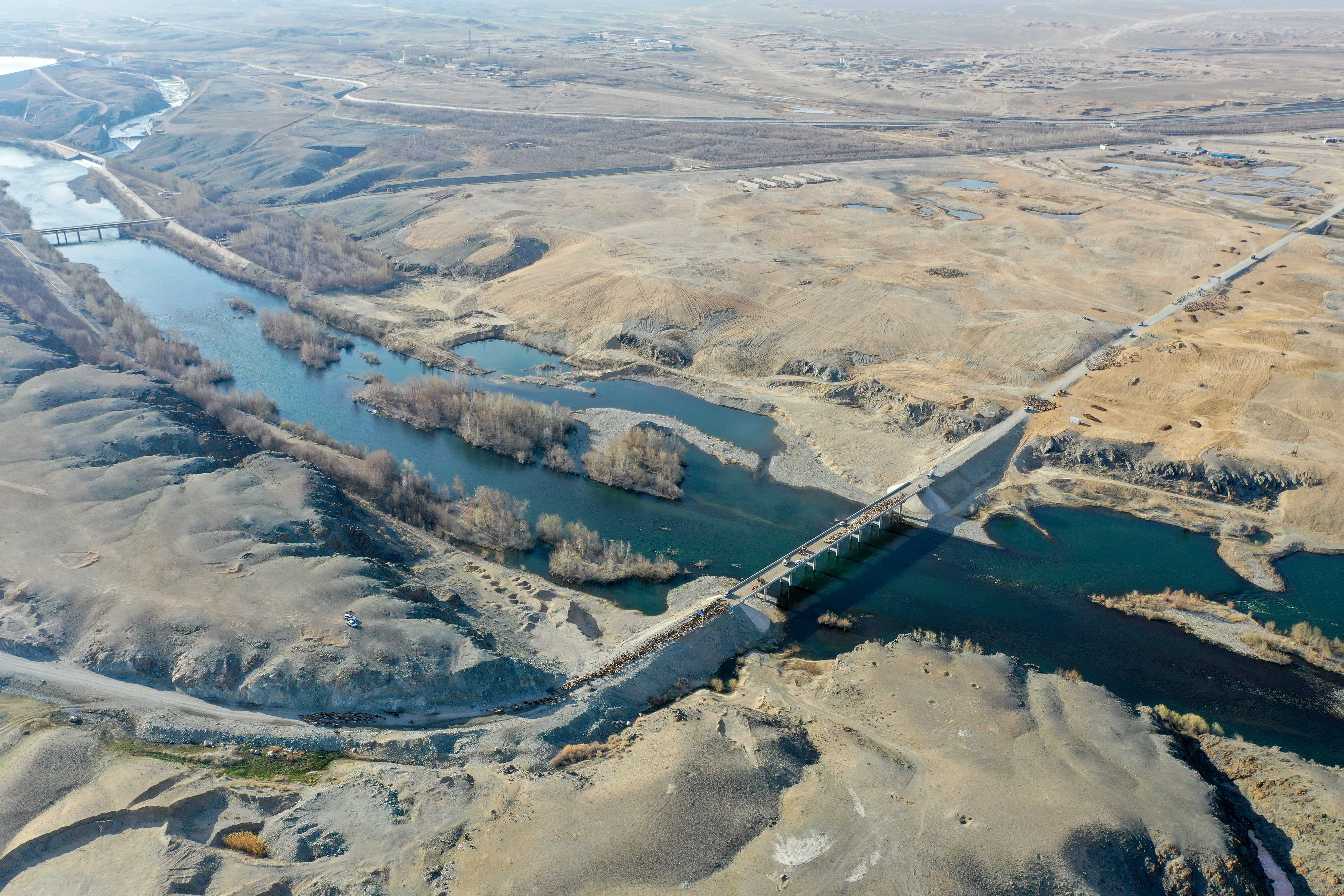
An aerial view of herders and their livestock crossing the Ertix River in Fuhai County, Xinjiang Uygur Autonomous Region, northwest China, April 15, 2020. (Xinhua/Ding Lei)
What is a "sheep unit"? Why do Xinjiang herders have to count their sheep before their big move to spring pastures?
URUMQI, April 24 (Xinhua) -- With new roads and bridges, a 100-km migration of livestock is no longer the headache it once was for animal drovers in Fuhai County, Xinjiang Uygur Autonomous Region, northwest China. Instead, they have honed a new skill -- math.
Days before the big move to spring pastures, herder Yerlan Kharimkhan, had carefully counted his camels, horses, and sheep twice, and handed his son task of converting the number of camels and horses into "sheep units."
"I'm only allowed to take 200 'sheep units' to the spring pasture, no more," said the seasoned livestock expert.
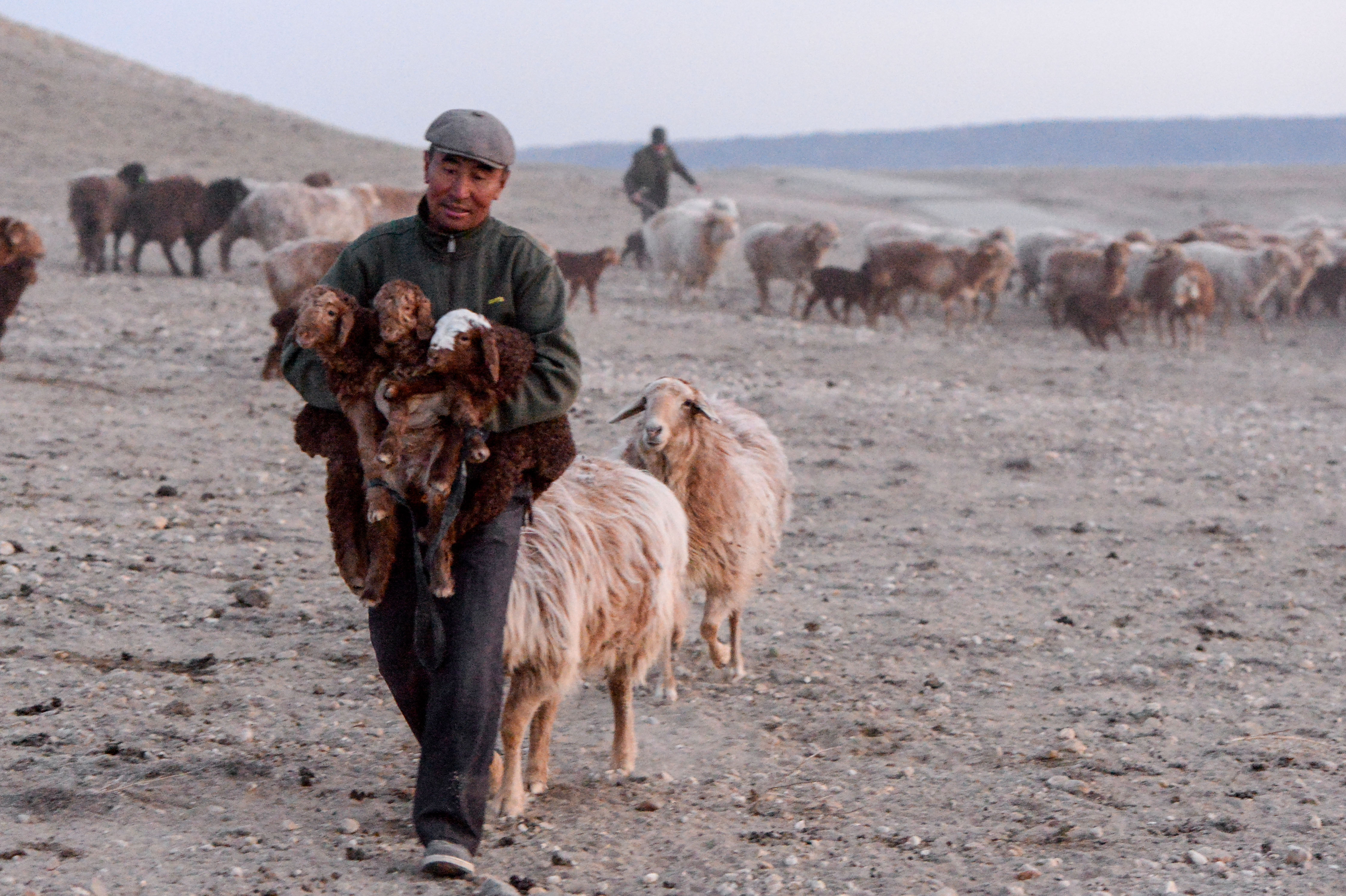
Yerlan Kharimkhan sorts his sheep before the big move to spring pastures in Fuhai County, Xinjiang Uygur Autonomous Region, northwest China, April 15, 2020. New born lambs are exempt from the strict conservation policies. (Xinhua/Ding Lei)

An aerial view of herders and their livestock on their way to the spring pasture in Fuhai County, Xinjiang Uygur Autonomous Region, northwest China, April 15, 2020. (Xinhua/Ding Lei)
Sheep units were the brainchild of the conservation administration in its bid to better protect grassland from over-grazing. It refers to how much grass one sheep eats. Based on that, herders can calculate the grass consumption of other animals.
"Cattle eat more grass than sheep. The grazing area for cattle is five times that for sheep," Yerlan explained; therefore, one cattle is the same five sheep units.
The natural environment is subject to strict conservation policies in Xinjiang. Herders are told to take a scientific approach to grassland, meaning they must balance grazing and environmental conservation. Each herder household, like Yerlan's, has been issued a grazing license, which details the location of the grassland, the approved grazing size, and the number of "sheep units."
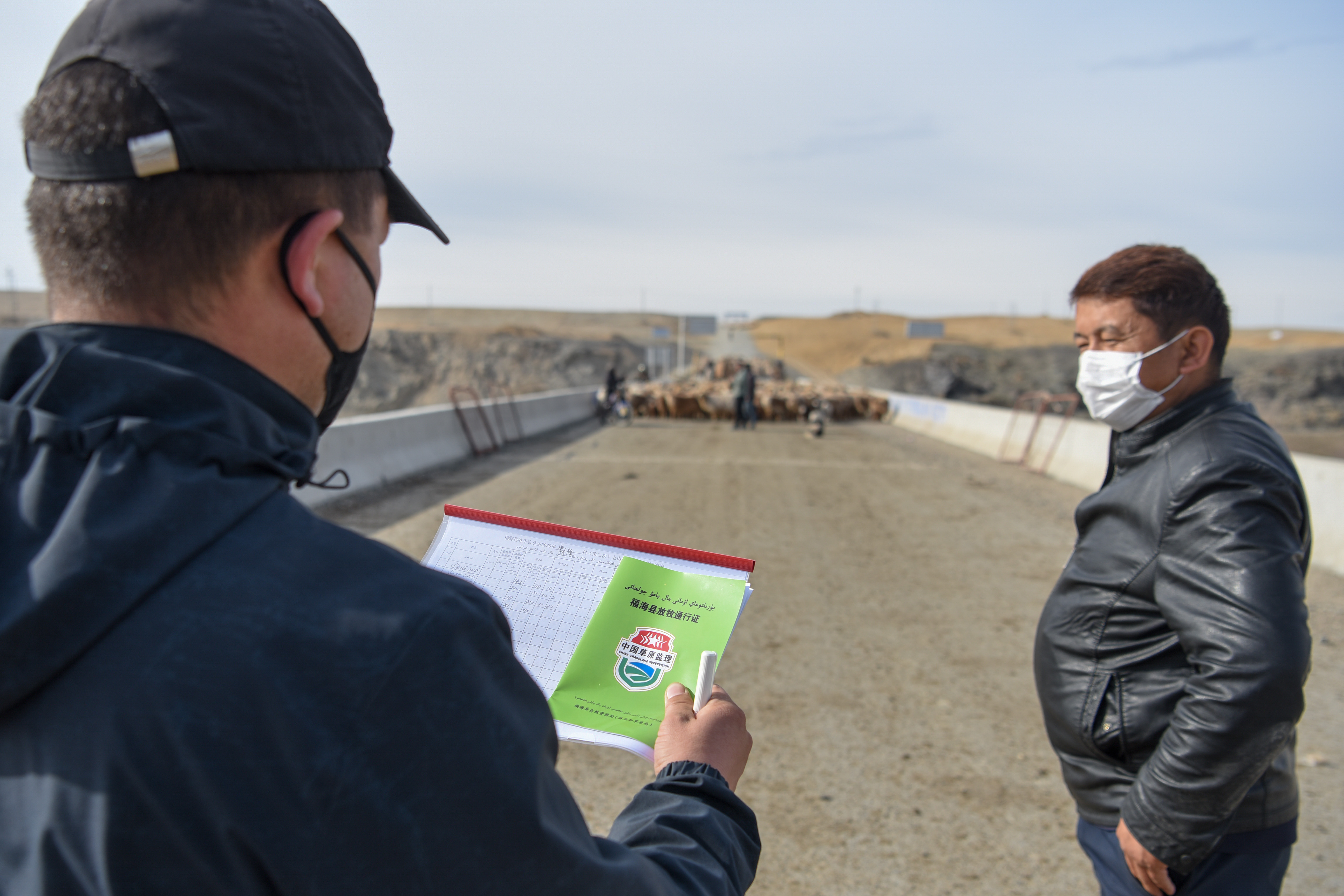
Grazing administration staff count the animals and check a herder's license in Fuhai County, Xinjiang Uygur Autonomous Region, northwest China, April 15, 2020. (Xinhua/Ding Lei)
"Too much livestock means the grass won't grow. It's the circle of life," said Kurengbek Muratbek, an official with the township grazing administration.
Kurengbek said that over-grazing in years past had left the grassland in a dire state. "In the past, cattle and sheep were easily fed. Now they have to fight for grass."
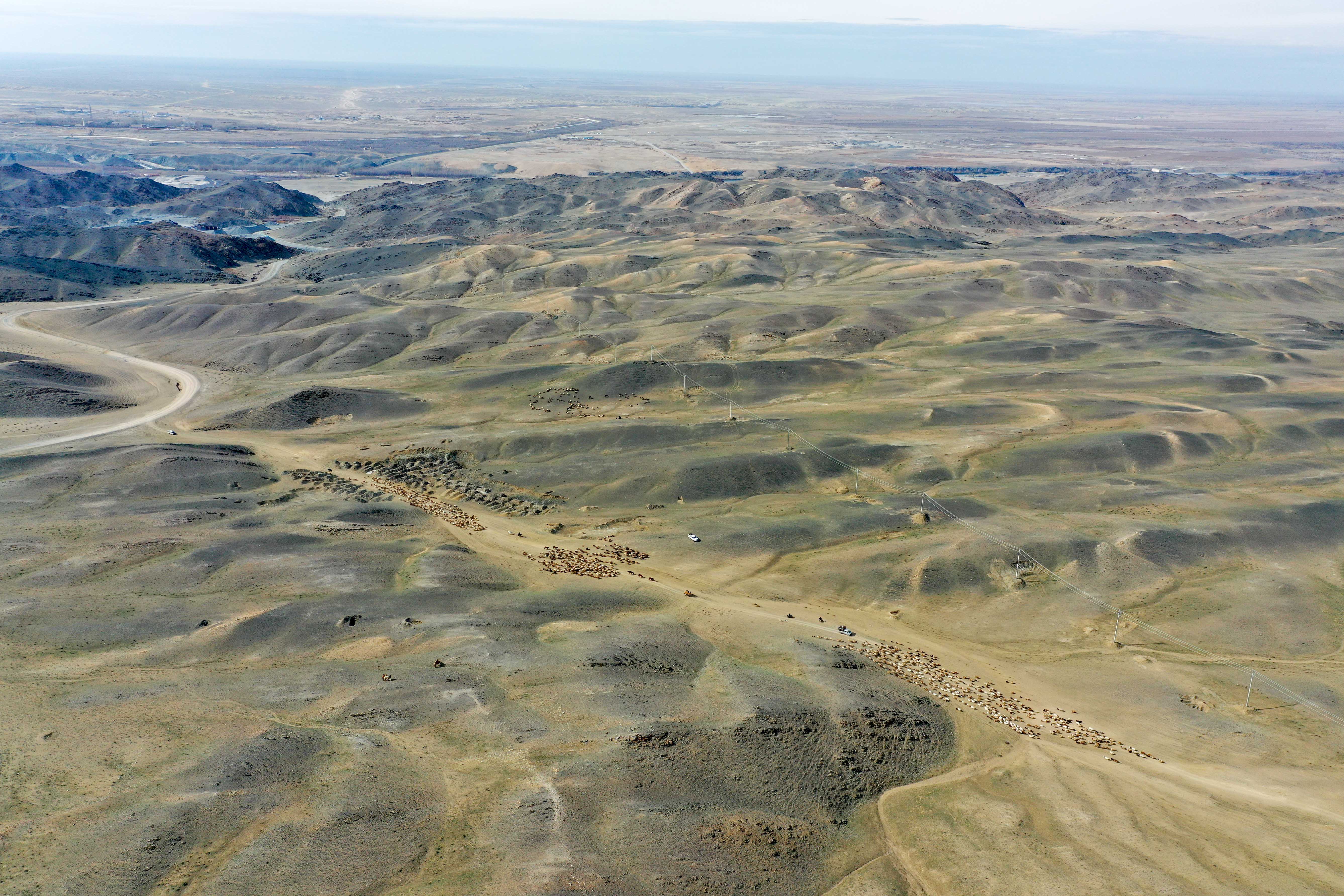
An aerial view of herders and their livestock on their way to the spring pasture in Fuhai County, Xinjiang Uygur Autonomous Region, northwest China, April 15, 2020. (Xinhua/Ding Lei)
With less grass, the livestock lost weight, which affected their sale price. And yet, nobody wanted to reduce their herds.
"We treasure our livestock, and none of us wanted to cut down our herds or flock," said Yerlan.
"If it was not for the new, strict rules, the grassland would disappear sooner or later, and with it, our nomadic life," said Kurengbek.
To get to spring pastures, herders and their livestock must cross the Ertix River, where grazing administration staff are on-hand to count the animals and check their licenses.

A grazing administration staff counts the animals on a bridge over the Ertix River in Fuhai County, Xinjiang Uygur Autonomous Region, northwest China, April 15, 2020. (Xinhua/Ding Lei)
If there are more animals than on the license, they are either sent back or sold, said Kurengbek.
"I sell my extra sheep in advance. The remaining sheep are fed for it and grow fatter," said Yerlan, "It's a righteous circle, and I can earn more money."
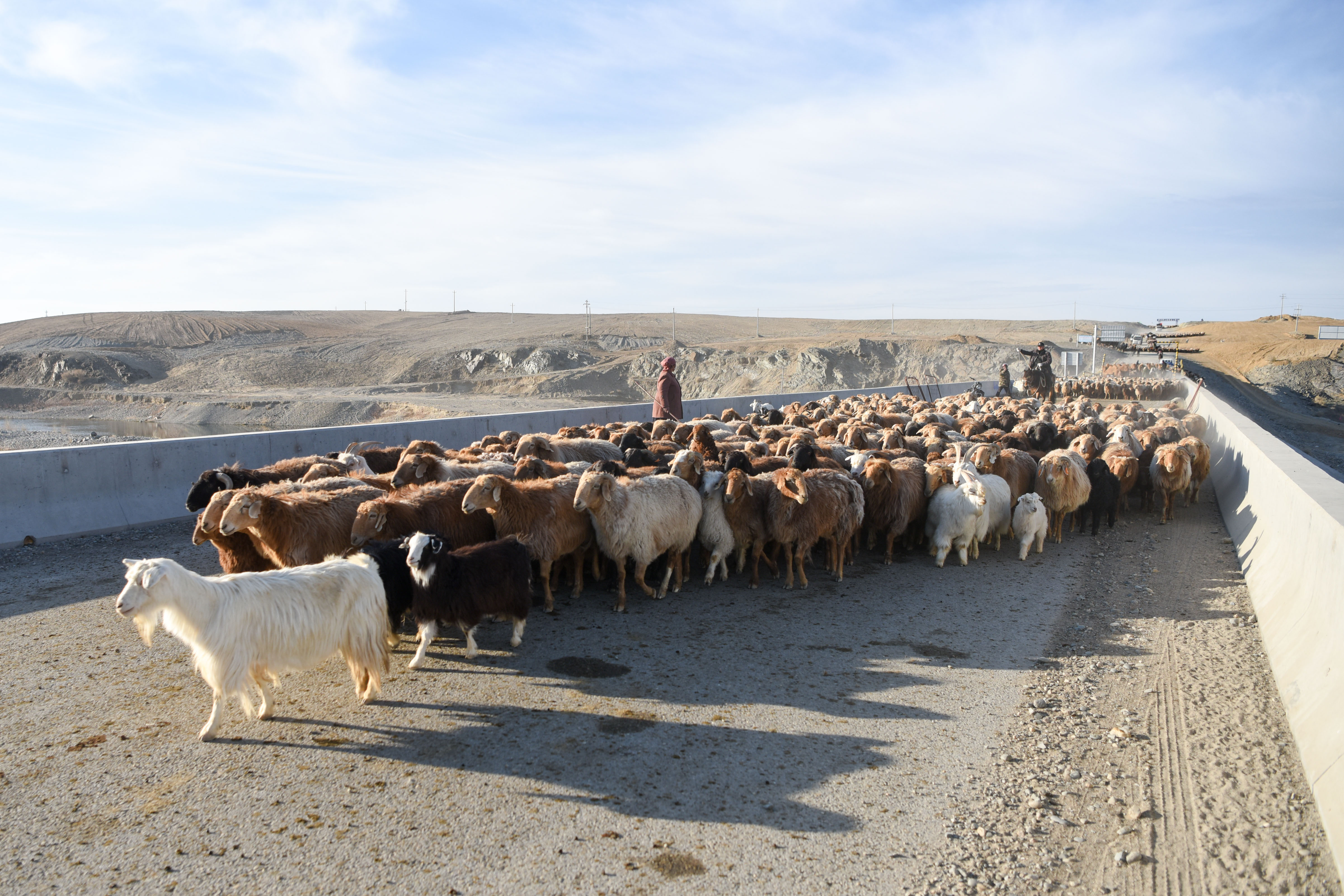
Herders and their livestock cross a bridge over the Ertix River in Fuhai County, Xinjiang Uygur Autonomous Region, northwest China, April 15, 2020. (Xinhua/Ding Lei)
After having his sheep counted, Yerlan herded his flocks heading to pasture on the mountain, where grass has just shot up. It takes three days to get there, but in his mind, he is pushed forward by visions of a greener grassland and a fatter flock. ■



